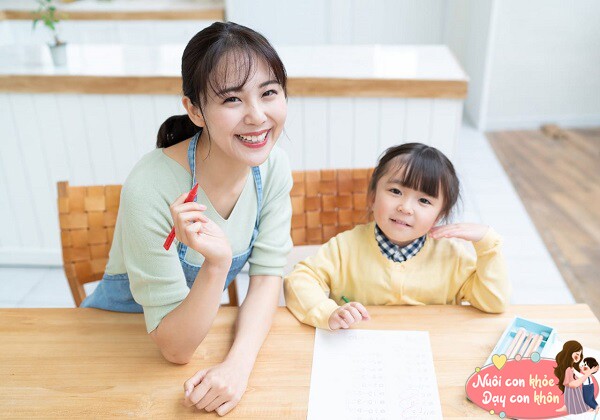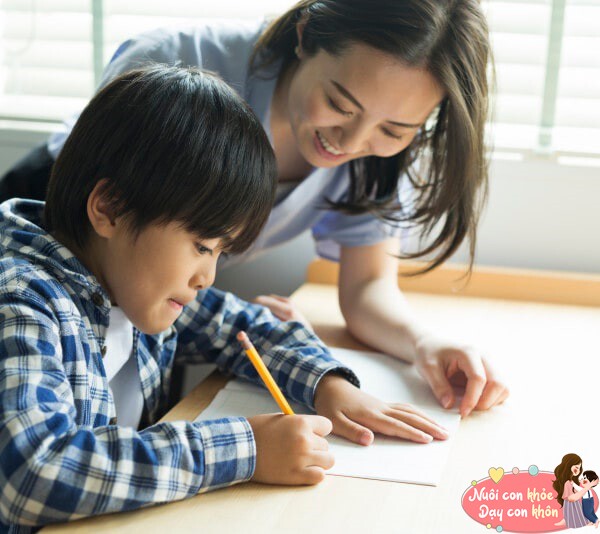By observing these children, it’s evident that their parents generally adhere to four distinct characteristics in their approach to family education.

Parents with Stable and Calm Mentality
Children growing up in a discordant family environment often become irritable and impatient. When parents struggle to control their anger and frequently express dissatisfaction, it gradually erodes the sense of security within the children.
How can children focus on their studies and well-being when they have to expend energy dealing with the “storm” of external conflicts?

Parents exhibiting a stable and calm mentality.
Parental emotions shape their children’s future. When parents rein in their anger, the family naturally becomes more harmonious and peaceful, fostering a more conducive environment for children to thrive. As they encounter challenges in the future, they are less likely to resort to anger or violence and are more inclined to remain calm, continue thinking, and seek feasible solutions.
By teaching children to control their anger, complaints, and dissatisfaction, and express themselves appropriately, even significant difficulties can be overcome with ease.

Emphasizing Early Study Habits
Wise parents understand that academic results are not the be-all and end-all. Instead, they invest time in cultivating good study habits from an early age. This approach helps children develop essential skills and lays a solid foundation for their future academic pursuits.
Rather than fixating on grades, parents should focus on creating a positive learning environment and encouraging curiosity. As one mother aptly put it: “We established clear study rules when our children started school. I won’t be a ‘crutch’ for their studies. Learning is their responsibility, and it’s okay if they make mistakes. If they don’t understand something, they should seek guidance from their teachers.”

Emphasizing the importance of early study habits.
This perspective on education is commendable. By refraining from excessive intervention, parents allow their children to experience, learn from their mistakes, and cultivate independence. When faced with multiple subjects and a heavy workload in the future, children with good study habits can persevere and make progress through their own efforts.
This approach empowers children to manage their time effectively, develop critical thinking skills, and become adept at problem-solving. When they learn to plan their studies and allocate time efficiently, they will approach their workload with greater confidence.

Willingness to Spend Time with Children
During the pivotal stage of adolescence, parental involvement and companionship are indispensable. This period is fraught with physical, psychological, and social changes, and parental support helps navigate these turbulent waters with a sense of security and self-assurance.
Psychological development and character formation take precedence over academic results and grades. Nurturing a loving family atmosphere and fostering emotional communication are essential for healthy growth. A warm and supportive family, where children feel loved and accepted, builds their resilience to life’s challenges.
Don’t underestimate the power of parental presence. Convey love and support in every moment, especially during adolescence, when children may encounter confusion and difficulties in their lives and studies. When children feel truly lost or directionless, knowing that their parents are always there for them provides a sense of security and encouragement.

Parents willing to dedicate time to their children.

A Home Filled with Positive Energy
A child burdened with anxiety, complaints, and discontent will struggle to build a fulfilling life. These negative emotions profoundly impact their psychological development and behavior, leading to a lack of self-confidence and difficulties in establishing healthy relationships.
Parental optimism and encouragement are pivotal in shaping their children’s outlook. A positive mindset and self-belief enable children to overcome challenges and embrace opportunities. Families are the initial environment for a child’s growth, and a positive atmosphere acts as an emotional refueling station, constantly replenishing their energy reserves.
When children grow up in a loving home, they naturally develop a positive mindset and the resilience to face adversity. Parents can cultivate this environment through open communication, expressions of love, and encouragement for their children to share their emotions.

A home imbued with positive energy.
The Magic Formula: 4 Steps to Help Parents and Children Excel
It is widely acknowledged that a child’s upbringing is heavily influenced by their parents’ emotional state and overall mindset. Experts in the field of child development strongly advocate for parents to prioritize their own emotional well-being and cultivate a positive outlook, as a foundational step towards effective parenting.








































